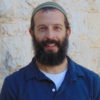Moses appointed police officers over the tribes but did not mention any judges. One might think, if we cannot have judges, at the least our society should have police. But, actually this is wrong. Police cannot be the law – they must merely enforce the law. This week’s parsha is Shoftim (Devarim 16:18-21:9), which is the Hebrew word for judges opens with these famous words: שֹֽׁפְטִ֣ים וְשֹֽׁטְרִ֗ים תִּתֶּן־לְךָ֙ בְּכָל־שְׁעָרֶ֔יךָ אֲשֶׁ֨ר יְהֹוָ֧ה אֱלֹהֶ֛יךָ נֹתֵ֥ן לְךָ֖ לִשְׁבָטֶ֑יךָ וְשָֽׁפְט֥וּ אֶת־הָעָ֖ם מִשְׁפַּט־צֶֽדֶק: 18 You shall set up judges and police for yourself in all your cities that the Lord, your God, is giving you, for your tribes, and they shall judge the people with righteous judgment. לֹֽא־תַטֶּ֣ה מִשְׁפָּ֔ט לֹ֥א תַכִּ֖יר פָּנִ֑ים וְלֹֽא־תִקַּ֣ח שֹׁ֔חַד כִּ֣י הַשֹּׁ֗חַד יְעַוֵּר֙ עֵינֵ֣י חֲכָמִ֔ים וִֽיסַלֵּ֖ף דִּבְרֵ֥י צַדִּיקִֽם: 19 You shall not pervert justice; you shall not show favoritism, and you shall not take a bribe, for bribery blinds the eyes of the wise and perverts just words. צֶ֥דֶק צֶ֖דֶק תִּרְדֹּ֑ף לְמַ֤עַן תִּֽחְיֶה֙ וְיָֽרַשְׁתָּ֣ אֶת־הָאָ֔רֶץ אֲשֶׁר־יְהֹוָ֥ה אֱלֹהֶ֖יךָ נֹתֵ֥ן לָֽךְ: 20 Justice, justice shall you pursue, that you may live and possess the land the Lord, your God, is giving you. Jewish tradition seems clear: both judges and police are needed and both […]
Topic: Shmita
Re’eh: Seeing the Unseen, By Devorah Brous
“When Moses stands in front of the tribes of Israel before they enter the holy land he gives a choice to follow the path of greed and exploitation or to choose life. In rewilding, may we learn to see the blessings around us, but not turn a blind eye to the curses.” This week, in Re’eh, we get the chance to do some real reckoning as we receive a set of laws that govern behaviors historically used as justification for political and religious violence. This single set of 55 laws has borne enormous influence, charting our shift away from “wild” desert ways toward “civilized” urban cultures full of rules, structures, and obligations. Moses delineates how to release debt; when to free the enslaved; how to tithe; and when to celebrate pilgrimage festivals. But see what else is required of us in Re’eh: “destroy their altars, break up their memorial stones, burn down their sacred trees, and obliterate their gods from that place.” Moses offers a stark choice: observe and be blessed, or ignore and be cursed. The promise we are given in this week’s parsha for standing up against idol worship e.g. greed is the promise of dwelling peacefully in […]

Ekev: Nature Imitates Humanity, by Yehudis Fishman
Sometimes we have to tread lightly, even on holy land, so that we can recall the ultimate Source of food, wealth, and our own lives. The entanglement of humanity and nature threads throughout the Torah, especially in Parshat Ekev. Sometimes it thunders through the world like the flood and revelation, and sometimes it whispers its way into the universe, like the ten statements of creation. Sometimes, as in this parsha, the connections are obvious, and often they are more subtle. This set of actions and results, is hinted in the very name of the parsha. Ekev has multiple meanings, the most relevant here is ‘as a consequence.’ However, the literal meaning of Ekev, heel, is also significant. Our heels walk upon this earth, with footprints of either destruction or growth, depending on our deeds, words, or even feelings and thoughts. The Maor Eynayim elaborates on this point at length. He speaks about the distinction between water in Egypt and rainfall in Israel, the former being readily available, and the latter being dependent on prayer and good behavior. Actually, this was the complaint here about the Manna: ‘Our souls are disgusted with this light or rotten bread’. One reason for their […]

Va’etchanan: Strengthen Your Spiritual Health, by Akiva Gersh
That is Shmita. Stop plowing, stop planting, stop weeding, stop watering, stop harvesting in our normal ways (or the modern-day parallel to these things) and use that freed-up time to start studying more, reading more, praying more, meditating more, sitting in silence more, contemplating more, eating consciously more. In this week’s parsha, Va’etchanan, we receive the following directive: “Guard yourself and guard your soul very much” (Deut. 4:9) and “You shall guard yourselves very well.” (Deut. 4:15) These verses are understood by Jewish tradition as referring to the mitzvah of protecting one’s physical health. It’s interesting to note, however, that the word “soul” is used in the verse and not “body”. The interconnection between these seemingly opposed entities is reflected in the writings of the Rambam when he teaches: “Since maintaining a healthy and sound body is among the ways of God, for one cannot understand or have any knowledge of the Creator if he is ill, therefore he must avoid that which harms the body and accustom himself to that which is helpful and helps the body become stronger.” (Hilchot Deot 4:1) From these two sources we can derive that physical health leads to spiritual health and that maybe […]

Devarim: Zion will be redeemed through justice: what Shmita teaches us about Tisha B’Av and the promise of Devarim, by Rabbi David Seidenberg
“On Tisha B’Av, we imagine that the land mourns with us. But that’s our human-centered way of seeing things. From God’s perspective, which is closer to an ecological perspective, the well-being of the land comes first. When humanity violates the land, it dooms itself to be treated like a plague from which the land must become healed.” The beginning of Deuteronomy is filled with promises about taking possession of the land of Canaan. But we always read parshat Devarim on the Shabbat before Tisha B’Av, when we remember that our ancestors lost possession of that land and went into exile. The Torah teaches that the way to live long in the land and avoid exile is not by having the strongest army, but by fulfilling the covenant of the Torah. And it tells us that one mitzvah is most important for making this happen: the Sabbatical or Shmita year, when the land rests. The Shmita year is a prescription for living sustainably upon the earth. Not only does the land rest every seventh year, but the year following every seventh Shmita year — the fiftieth year of Jubilee — every family returns to the land it received when the land […]

Matot-Masei: The Land is Our Mother, by Rabbi Sam Feinsmith
“They journeyed…and camped…and journeyed…” (Numbers 33:3-49). The nomadic lifestyle of the people, their constant journeying, encamping, and journeying once again as the spirit moved them served to remind them that they were but visitors upon this earth, here for a short while by the grace of God. A number of years ago my partner and I met a Native American medicine man in Northern Michigan. In the course of conversation he shared his bewilderment around the practice of selling land: “The land is our mother. How could you sell your own mother?!” His worldview was characterized by a deep sense of loving connection, reverence, and appreciation for the earth not as a commodity to be bought and sold but as a giver of life. Close study of Leviticus 25—which relays the laws of Yovel (Jubilee)—reveals a similar orientation to the sale of land. Coming on the heels of seven Shmita (Sabbatical) cycles, Jubilee is the great letting go that reminds us that the land isn’t ours to buy and sell. Land may not be sold in perpetuity (v. 23); all ancestral lands purchased since the last Jubilee are to be returned to their original tribal landholders (v. 10, 13). Even […]

Pinchas: Of Names and Land, by Ilana Stein
What is so important about this story? It is not necessarily or only about equal rights. With our ‘shmita’ caps on, at all points at which this narrative is told, it is a message to the men who have the power to take up their inheritance – to show them what it means to truly love the land of Israel. These “mere women” felt so connected to the land that they were prepared to breach the male halls of wisdom to find their own space in Israel.* In our parsha, the people of Israel begin preparations towards appropriation of the Promised Land. Moshe divides the land amongst the tribes: “Among these the land shall be apportioned as shares” (Bemidbar 26:53), with the inheritance of land going to male heirs in those days. However, the daughters of Zelophechad are not happy. They approach Moshe and “the entire congregation at the entrance of the Tent of Meeting” (27:2) – which was unheard of for women to do! Then, each of the daughters is named: “and his daughters’ names were Mahlah, Noah, Hoglah, Milcah, and Tirzah” (27:1) – again, not a common occurrence. Finally, God gives a ringing endorsement: “Zelophehad’s daughters speak justly. […]

Balak: A Right-Sizing Blessing, by Fred Scherlinder Dobb
הִנֵּ֥ה בָרֵ֖ךְ לָקָ֑חְתִּי וּבֵרֵ֖ךְ וְלֹ֥א אֲשִׁיבֶֽנָּה׃ “Behold, I’m bidden to bless: And God has blessed; I cannot / will not reverse it.” (Numbers 23:20) What’s a blessing, anyway?! The root bet-resh-khaf, in biblical context, can mean gifting, predicting, describing, cursing, magnifying, and more. That last idea, ‘enlargement,’ often works best – including when King Balak sends Bilaam to curse the Israelites, but feeling the Divine flow, this prophet-for-hire only blesses. Bilaam’s beautiful blessing is so enlarging, it opens our morning liturgy: מַה־טֹּ֥בוּ אֹהָלֶ֖יךָ יַעֲקֹ֑ב מִשְׁכְּנֹתֶ֖יךָ יִשְׂרָאֵֽל — “how good are your tents, Jacob; your dwelling places, Israel!” (24:5). Our ancestors traveled light, leaving little trace; their tents were simple and portable. Bilaam’s “blessing” wasn’t about physical enlargement, then, but spiritual uplift. Just the blessing we need today! A blessing which we already have, in the form of shabbat, and shabbaton/shmita. Turning every seventh day from concrete things to spiritual ideals, Shabbat undergirds Judaism’s eco-ethos. And every seventh year, shmita’s “radical release” confirms that ethic. Modernity conflated blessing with expansion, and it’s killing us, since nothing corporeal can grow indefinitely. Not organisms, or populations; things, or economies. Only the spiritual realm allows for continual growth. Our entire way of life must therefore incorporate shabbat and […]

Chukat: Child Sacrifice and Shmita, by Rabbi Gila Caine
“But Shmita teaches us that we are only guests here on the Land, and it teaches us that we are always planning for at least seven years in the future, if not for forty-nine or fifty. When we think in these bits of time, we must see beyond ourselves, we must think about our children and children’s children and the Earth we leave for them.” Shmita is a practice in thinking about the future and in our ability to comprehend a time beyond this year, or even beyond next year. When we practice Shmita we think in increments of seven years, of forty-nine years, of fifty. These are generational timespans, that call on us to expand our thinking into the days of our children and grandchildren. Our week’s Torah portion is Chukat, a goody bag of a Parasha full of huge and important subjects. The Haftarah (this Shabbat’s reading from the prophets and judges) on the other hand tells us the story of the warlord Yiftach and ends with a vow he takes: “And Yiftach made a vow to Adonai and said ‘If You indeed give me the Ammonites into my hand, it shall be that whatever comes out of the […]

Parshat Korach: The Taker, by Hannah Elovitz
“As the climate crisis worsens, the ground opening up and swallowing Korach’s band does not feel as far-fetched as it once may have. The earth is not an endless supply of resources for our consumption, and greed will only exacerbate the situation.” My grandfather, I am told, would say: “You know what Korach’s problem was? The Torah says, ‘Vayikach Korach.’ (‘Korach took.’) Korach was a taker.” The week of Parshat Korach this year marks my maternal grandfather Rabbi Mayer Weisenberg’s z’l fourth yahrtzeit. He modeled a life of Jewish values, leading by example for his family, community, and beyond. In many ways, he is the reason my life is grounded in yiddishkeit, and I dedicate this dvar torah to him. The Israelites journey on through the desert when Korach, from the tribe of Levi, gathers 250 people and provokes a rebellion. As one might expect, rebelling against Moses and by extension God did not end well: the very ground underneath their feet opens and swallows the rebels whole, along with all their possessions. The legacy of Korach’s rebellion does not end there. We learn later in the parsha that the tribe of Levi will not inherit its own portion of […]

Shlach: Moving Forward with Faith, by Bruce Spierer
“Now if you should say to yourselves: What are we to eat in the seventh year? For we may not sow, we may not gather our produce! Then I will dispatch my blessing for you during the sixth year so that it yields produce for three years.” (Leviticus 25:20-21) The Torah understands that humans are risk-averse and afraid to change the status quo, even when it will lead to a great blessing. Shlach opens with G!d’s command to the Israelites to “Send men to scout the land of Canaan, which I am giving to the Israelite people…” (Numbers 2:2). Twelve scouts or spies are sent out and report back to the whole Israelite community. They all agree that the land is good, “flowing in milk and honey,” just as G!d promised. But, except for Caleb and Joshua, the spies also report that their enemies are too strong, and some are even giants! The whole community becomes frenzied with fear that they cannot conquer the land and are being led to their death. G!d becomes angry with their lack of faith and declares that over the next 40 years, everyone except for Caleb and Joshua will die in the wilderness. As a result of […]

Behaalotecha: Until Miryam Was Brought Back, by Dr. Gregory Mobley
“and the people did not set out until Miryam was brought back” (Numbers 12:15) I have a thing for stories so the section of Behaalotecha that attracted my attention was the scene in Numbers 12:1-16 in which Miryam is struck by a skin disease for, along with Aaron, challenging Moses’ prophetic authority. We certainly didn’t read it in the Baptist Sunday School of my youth. Where to start? With the common but nevertheless grating idiom of marriage as a man “taking” (laqaḥ) a woman, or with the nature of Miryam and Aaron’s beef with Moses, that he had married a “Cushite” (Num 12:1)? Were they referring to Tzipora (from Midian) or to another wife? “Cush” in Biblical Hebrew usually refers to regions of east Africa south of Egypt. Were they upset that Moses had married an African? If so, it was more a matter of ethnocentrism than racism, because ancient Israelites did not view people in terms of “black” and “white.” This very text refers to Moses as the most ‘anav (“humble”? “god-dependent”?) of all the haʼadam ʼašer ‘al-penê haʼadamah, and the wordplay of ʼadam/ʼadamah itself refers to skin-color: the being (ʼadam) created from the terra rosa (ʼadamah) was reddish […]
Naso: Disciplining the Green Eyed Monster, by Dr. Susan Eisenstein
At one time or another we have all been visited by “the green eyed monster.” Maybe you know someone who just bought a new car and you cannot afford a new car. Maybe a work colleague just received a promotion that you coveted. It can be almost anything. Jealousy is a powerful force and all too often, we compare ourselves to our friends and neighbors. In the competitive society in which we live, I have even witnessed women carrying on a one-upmanship conversation that went on for over an hour, about their grandchildren getting into law school. One woman would mention the name of a prestigious school her grandson attended and then the other woman would name an even more prestigious school that her grandson attended. Then they went on to internships and jobs. Each time trying to out do the other. Our children also fall victim to “the green eyed monster.” Parents can witness this almost daily. In this week’s Parsha, Naso, we read about the laws regarding a sotah. A woman whose husband has suspicions about his wife’s suspected infidelity. The Torah tells us of an elaborate procedure putting the jealous husband’s suspicions to rest. By doing this, […]

Bamidbar: Grow, Grow, by Dr. Susan Eisenstein
I have always loved land. Although a city kid, from the time I was five years old, I remember wanting to live on a farm. I loved seeing things grow and planting seeds for food and flowers. Every plant to eat and every flower grown was counted. All were loved. Planting had a pattern to it. And certain plants and flowers yielded their fruit earlier or later than others. I had faith that all would grow in its time. Every summer I looked forward to spending time in the country and to this ritual and spirituality. The land was a living entity to me, to be respected. This week’s Torah portion, Bamidbar, finds the Israelites wandering in the desert. The excitement of escaping from Egypt and receiving the Torah at Mt. Sinai are over. Now will come a time of growth. The people will test limits. And there will be a time for renewal. It is a time for the Israelites to consolidate their identity as a nation and their relationship with God. One of Bamidbar’s major themes is the census of its people. The members of the tribes are counted individually, as every Jew passed in front of Moses […]
Shmita & Parshat Behar Bechukotai 5781
Please enjoy this week’s video newsletter message. Full text transcript is below. We were thinking we might try and send out some videos as well as just written words, and this week’s parsha seemed like a great time to begin. (Leviticus 25:1) “Vayedaber adonai el moshe behar sinai leymor,” “And God speaks to Moses on Mount Sinai saying” “Daber el bnai yisrael”, “Speak to the children of Israel,” “V’amarta elehem,” “and say to them,” “Ki tavo el haaretz asher ani noten lachem,” “When you come to the land which I give to you,” “Veshavta haaretz shabbat laadonai,” “The land should be at rest, a shabbat for God,” “Shesh shanim tizra sadecha,” “six years sow your field,” “V’shesh shanim tizmor carmecha,” “Six years gather from your vineyard,” “V’asafta el tvuata,” “And harvest your produce,” “U’v’shana hashviit,” “And in the seventh year,” “Shabbat shabbaton,” “It should be a full shabbat,” “Shabbat shabbaton yihiyeh la’aretz,” “for the land,” “Shabbat ladonai,” “And a Shabbat for God,” “Sadcha lo tizra,” “Don’t plant your fields,” “V’charmcha lo tizmor,” “Don’t prune your vineyard.” Later on, by the way, in the same parsha, famously, we’ve got (Lev. 25:10) “V’kidashtam at shnat ha’chamishim shana” “You should sanctify the fiftieth year,” “U’kratem dror […]



